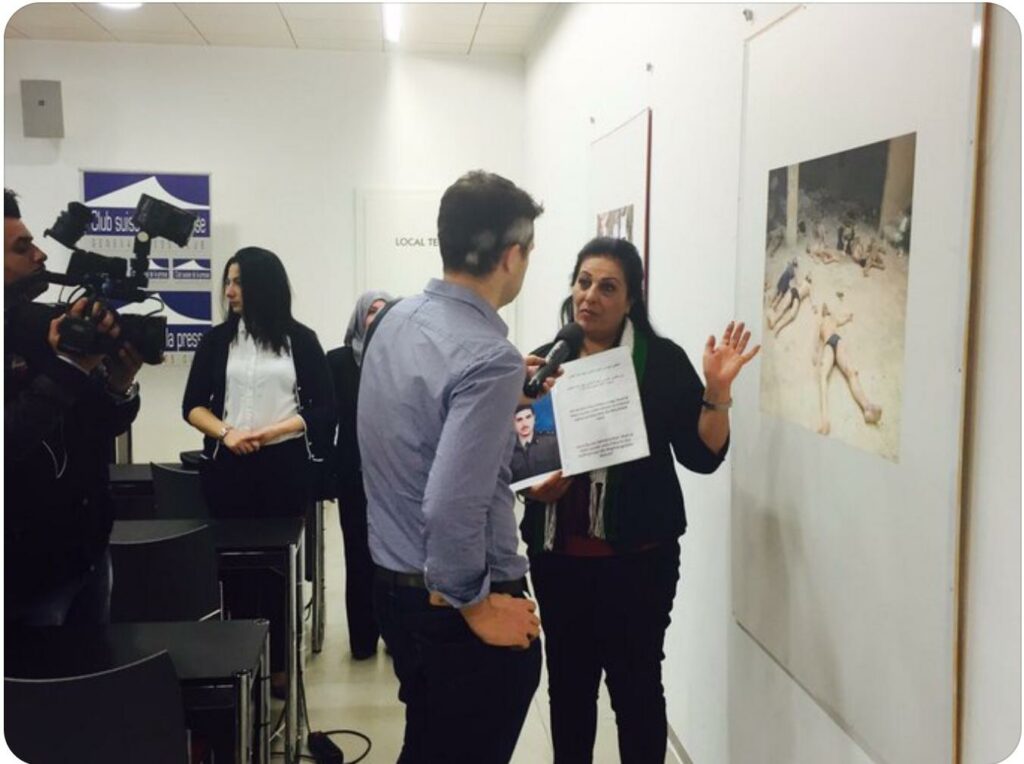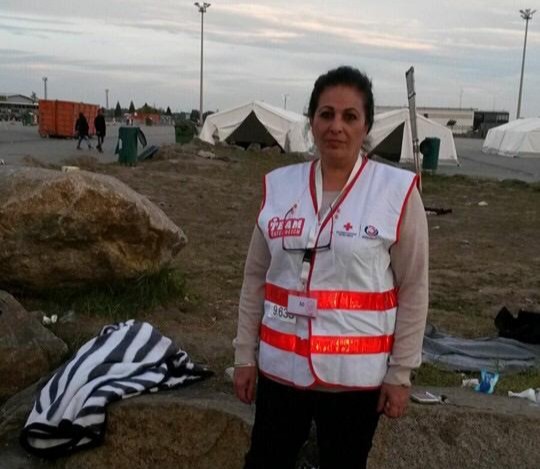Hanada al-Refai, Release From Detention is a New Birth
- updated: July 17, 2020
- |
In 2011, when the revolution started, Hanada al-Refai was living in Damascus with her husband and children. At the time, her father was living alone in Daraa, and he was suffering from a cardio problem. When the city came under siege, Hanada was very worried about her father’s health, especially that all communications with Daraa were severed. At that point she started to communicate with some activists who were distributing bread and food to people and asked them to find her father and reassure her about his condition. Since then, Hanada engaged with secret groups working under pseudonyms uploading videos of demonstrations or martyrs who were killed under torture to specific organizations or TV channels. She also participated in the provision of relief materials and aid to besieged areas. Hanada was detained on 15 March 2012 and she was released after seven months, all of which she spent in the Air Force Intelligence Department of Harasta. Her brother, who was a military judge, was detained for two years in Saydnaya, and he was killed under torture.
In 2014, Hanada fled to Turkey to escape getting detained again. She stayed in Gaziantep for a year and a half where she worked for the Democrats’ office. After the establishment of the Syrian Interim Government, Hanada was hired by the ministry of education in the position of a chief of bureau, then she resigned after one year, and left for Europe with her family, through the sea, and settled in Austria. She is working on a project for teaching young refugees.
Her strong personality and independence, along with her good English, and being used to traveling even before the revolution, helped her to integrate quickly in the new host community, in spite of all challenges she faced, especially being away from her children who are living in different areas of Europe, while she lives in a lodging with an Austrian family.
Hanada’s interest in politics began with the beginning of the revolution. At a later stage, she joined political bodies that began to emerge in Turkey. She says that as a woman she focused on women political bodies in the first place, because she believes that the revolution should not only against the regime only, but also against so many concepts and issues regarding women and their rights in specific.
Hanada says that challenges facing women in politics are represented in intimidation from getting detained and raped. Therefore, by eliminating the participation of women in politics, half of the community has been marginalized and excluded. Another challenge faces women in their work in politics, which is not taking women opinions seriously and the critical and negative perception of anything they do.

“Syrian women are the ones who will build the future of Syria, so they have to hold on to the revolution’s goals and principles to accomplish them. We have a legitimate right and we want to serve justice, fulfil freedom and hold the regime accountable. This what motivates me to keep working in public affairs and not give up under disappointment and despair.”
Hanada decided to join SWPM because she believes in its principles and goals, and because she sees in it a real and effective platform through which she can contribute to making woman’s voices heard. Hanada also expects SWPM to succeed in bringing women to decision making positions, thanks to the persistence, devotion, expertise and qualifications of its male and female members.
Hanada stresses that Syrian women are the ones who will build the future of Syria, so they have to hold on to the revolution’s goals and principles to accomplish them. We have a legitimate right and we want to serve justice, fulfil freedom and hold the regime accountable. This what gives Hanada the motive to keep working in public affairs and not give up under disappointment and despair.
“I dream of a free and safe Syria, under a regime that protects its people and where women are genuinely respected and have all their rights and young people have job opportunities that guarantee a decent and respectful life which they deserve.”
One of the moment during the revolution that Hanada will never forget is that moment when she received news about her father that he was fine during the siege of Daraa, as well as when she was released from detention, when she felt as she was born again, as she said.
Hanada dreams of a free and safe Syria, under a regime that protects its people and where women are genuinely respected and have all their rights and young people have job opportunities that guarantee a decent and respectful life which they deserve. Hanada says to the women of Syria: “you are strong; you have proven yourselves in all fields during the revolution, so after the revolution prevails, you must maintain the same resolve, challenging injustices, habits and traditions that constrain your freedom. You must continue the struggle until you acquire all your rights”.
